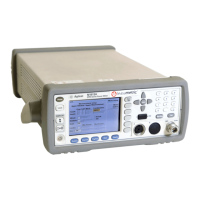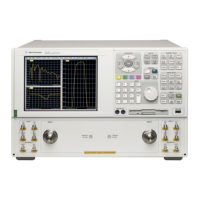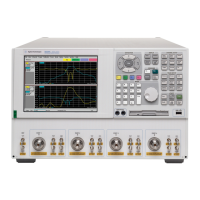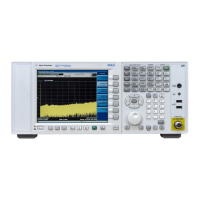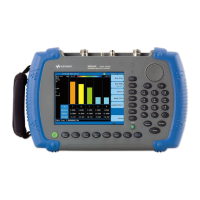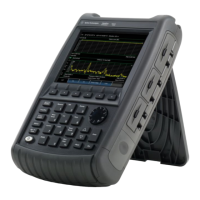202 Chapter 3
Mode
Return Loss
Mode
Return Loss
Return Loss Description
Return loss is a measure of reflection characteristics. The return loss measurement allows
you to quantify how much of a signal is reflected back from a device instead of being
absorbed by the device or passed through it.
One way you can use the return loss measurement is to detect problems in the antenna
feedline system and the antenna itself. A portion of the incident power will be reflected
back to the source from each transmission line fault as well as the antenna. The ratio of
the reflected voltages to the incident voltage is called the reflection coefficient. The
reflection coefficient is a complex number, meaning it has both magnitude and phase
information. In S-parameter terms, Return Loss is referred to as an S11 measurement.
To configure measurement settings, select
Return Loss and then press Meas Setup. Pressing
Control/Sweep enables you to restart a measurement. Refer to the “Control/Sweep
Functions” on page 252.
NOTE The test signal emitted from the RF OUTPUT connector is a sine wave,
swept from the starting frequency to the stop frequency. When testing
cables that are attached to antennas, test signals are radiated, and
these test signals can cause interference. Verify that the signal used for
the test cannot cause interference to another antenna.
AMPTD/Y Scale
Activates the reference level function, and accesses the amplitude menu keys. The
amplitude menu keys set functions that affect the way data on the vertical axis is
displayed or corrected. The
AMPTD/Y Scale keys are for setting up a Return Loss
measurement. The measurement must already be running to access these keys. Press
Meas, Return Loss to turn on the measurement.
Mode Stimulus / Response
State Saved Saved in instrument state.
Key Path
MEAS, Return Loss
Mode: SA
Key Path Front-panel key
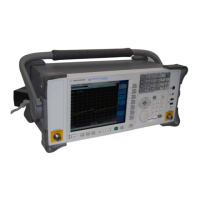
